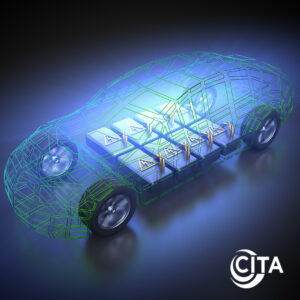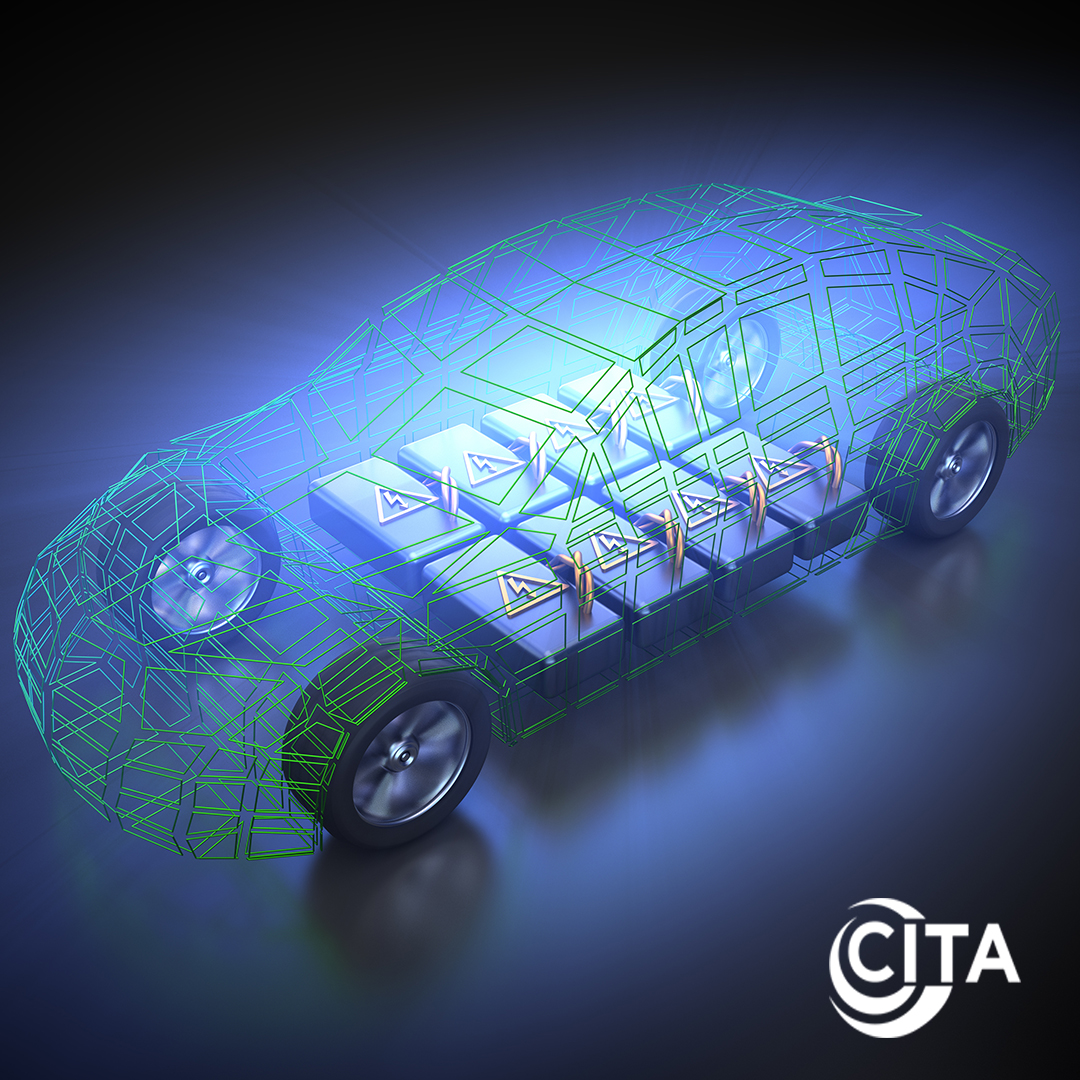Ensuring lifetime compliance of EVs with safety & sustainability requirements
 Due to recent regulatory changes, technological advances, and changing consumer behaviour, the adoption of electric vehicles (EVs) is on the rise and will increase dramatically in most major automotive markets. With electric vehicles claiming an ever-increasing share of the vehicle fleet, it is critical to ensure that safety and environmental performance requirements are met through vehicle lifetime compliance.
Due to recent regulatory changes, technological advances, and changing consumer behaviour, the adoption of electric vehicles (EVs) is on the rise and will increase dramatically in most major automotive markets. With electric vehicles claiming an ever-increasing share of the vehicle fleet, it is critical to ensure that safety and environmental performance requirements are met through vehicle lifetime compliance.
CITA is convinced that ensuring the safe use of EVs and a proven positive impact on reducing emissions is an enabler of EV adoption rather than a roadblock. At the same time, current Periodical Technical Inspection (PTI) criteria do not yet address the specifics of EVs.
A task force made up of international PTI and EV experts has developed a series of recommendations published in last CITA report entitled: “ENSURING LIFETIME COMPLIANCE OF ELECTRIC VEHICLES (EVs) WITH SAFETY AND SUSTAINABILITY REQUIREMENTS”
The recommendations of this report aim to ensure vehicle safety and compliance with environmental performance throughout the life of the vehicle; to consider the cost / benefit and convenience aspects from the user’s point of view, and to keep the investment for PTI service providers – and therefore the cost for those who pay or finance PTI – at a manageable level.
With the term “EV” the document refers to vehicles that have an electric drivetrain, whether or not it is combined with a traditional combustion engine such as in hybrid vehicles.
While compliance with many, but not all, of these requirements is checked at type approval, the function of relevant systems and components may deteriorate due to ageing, damage or tampering over the use phase of the vehicle.
This document, divided in four main areas, summarizes CITAs recommendations on how PTI should be adapted to cover EVs appropriately:
- General safety.
- Electrical safety inspection (electric elements and resistance/isolation).
- Rechargeable Energy Storage System (REESS) and Battery Management System (BMS).
- Electric energy consumption.
Moreover, several prerequisites for an effective PTI-adaption for EVs need to be given. These include, but are not restricted to:
- A mandate for relevant items to become part of the type-approval requirements,
- Open access to relevant OEM data for PTI organizations in a legally standardized form, in a centralized way and on a non-discriminatory basis, and
- Relevant equipment needs to be available at the place where PTI is conducted, and inspectors must be appropriately trained for HSE (health, safety, environment) purposes and to achieve consistent outcomes.
CITA aims to initiate a constructive and target-oriented dialogue with relevant policymakers and key industry stakeholders to adapt PTI where needed for EVs. CITA strongly believes that for EVs to play out their full potential in terms of achieving sustainable and safe mobility while ensuring user acceptance over time, the items as laid out in this document must be regularly inspected over a vehicle’s lifetime.
The Periodic Technical Inspection (PTI) is essential and needs to be adapted quickly for electric vehicles.

